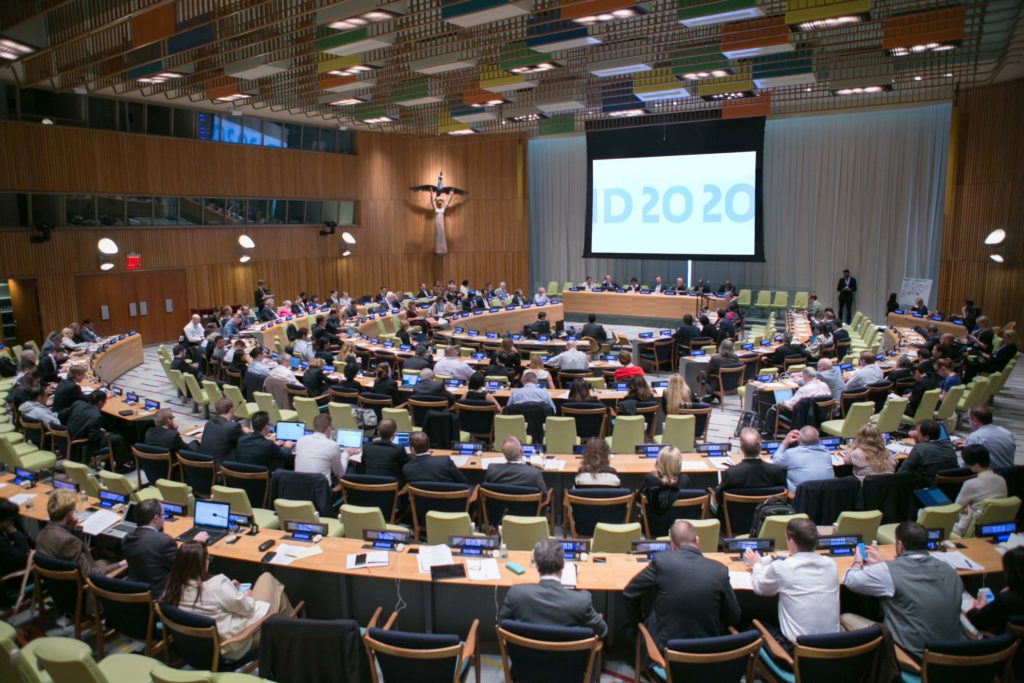
ID2020 2016 summit held at United Nations headquarters in New York. Image: ID2020 official website
People may not always like ID photos but a valid ID itself is an indispensable item. It helps with banking, voting, traveling overseas, claiming wired money, and more. For people who have no documentation of their identity, functioning in society becomes difficult.
To date, there are 1.1 billion people around the world that have no officially recognized identity, according to a United Nations estimate. To solve this problem, the U.N. will be working with Microsoft, Avanade and Accenture to create a digital ID system using biometrics and blockchain technology.
When deployed, the system will manage and keep track of fingerprint, iris and other personal data. The ID database will then be distributed and run by various trusted parties across a blockchain protocol instead of storing it in a central hub. This way, the threat of one giant database being compromised due to hacking can be minimized.
Having a blockchain protocol will also help make the ID database accessible overseas. While mostly reliant on biometrics, the individual may also provide identification through other personal information encoded in the digital ID.
Digital IDs are part of the U.N.-backed ID2020, a project involving the public and private sector, including non-government organizations aiming to give every human on the planet a unique digital identity by the year 2030, as part of basic human rights. A technical proof of concept is targeted by the year 2020. JB